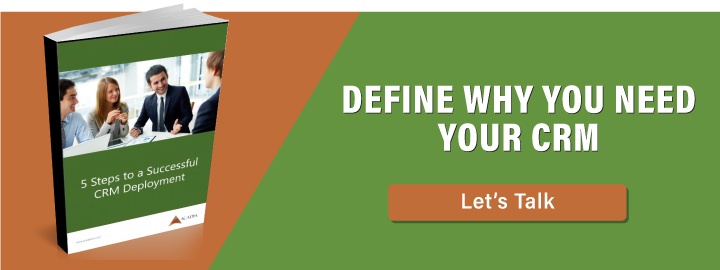Don't have time to read the blog? Watch it instead!
B2B Lead Generation Questions
Customers. Clients. Whatever you call them, our businesses exist because of them. We all know this. But did you know that many small businesses survive on one large client or a few word-of-mouth referrals? Unfortunately, your clients and how you get them will ultimately determine whether you're a long-term successor barely hanging on.
At Acadia, we're asked every day, "How do I grow my customer base?"
To answer that, we have to ask a lot of questions (and start a lot of conversations). Here are the top five questions we ask first - you need to be able to answer them to understand how to generate leads and engage new customers:
1. Who is your ideal customer?
It might not be the client giving you the most business or sending you the biggest checks. A good customer is the most profitable, the best suited to work with your organization, those who understand the value you provide, and those you collaborate the best with. And don't forget to include all of the industry segments that may value your products/services?
These customers may be difficult to identify. Challenge your thoughts and consider organizations that you may have overlooked. And don't do this in a bubble - ask people inside and outside of your organization for their two cents.
2. What do you tell your ideal customer about your product/services?
How do you present your capabilities and what is your value statement? Do you clearly state what you do, who you do it for, and why you do it?
 This is another set of challenging questions. Business owners often get stuck in their own minds about what they do. Get a group of colleagues together and ask them to tell you what you do in their own words. Are they correct? Are they too vague? This will open your mind to how your organization is perceived.
This is another set of challenging questions. Business owners often get stuck in their own minds about what they do. Get a group of colleagues together and ask them to tell you what you do in their own words. Are they correct? Are they too vague? This will open your mind to how your organization is perceived.
3. What does your ideal customer want to know about you?
You may want to tell customers all about your great on-time delivery and superior product quality right away. However, the customer might want to start a conversation by learning how you manage a design specification or how you can customize a solution just for them. Tell them what they want to know, and make it easy for them to do business with you.
Don't know where to start? Ask, by interview or survey, your current customers what they think about you or how, in their own words, they'd explain what you do. Also, research your competitors to see how they position themselves. Find where out where you differ.
4. Where do you find customers?
If you're used to only word-of-mouth referrals, this will be difficult to answer. You really haven't been finding customers, you've just been quoting current clients. Know the difference between quoting and prospecting; they're not the same. Quoting is reactive while prospecting is proactive.
5. How do customers find you?
Do customers find you on the internet? Do they call you because they received a direct mailer? Do they meet you at a trade show? Do you advertise in a trade magazine? Look at what you're doing to get found and think about what more you can do.
Start engaging new customers by answering these five questions. Then draft a list of the companies that fall within the best customer profiles. Next step: Engage them. This includes inbound and outbound marketing strategies. Inbound marketing pulls clients to you by delivering meaningful content to the right people at the right time. Traditional outbound marketing includes methods such as trade shows or sales calls, methods that engage a prospect in a conversation to see if they are a good fit. Wondering which works best? Blend both for optimal results.
"Customers - who are they, how do we find them, what do we tell them, how do we convert them and keep them?"
The answers to these questions are the holy grail for any business and must be a DAILY PRIORITY in order to keep ourselves in the black.







Comments